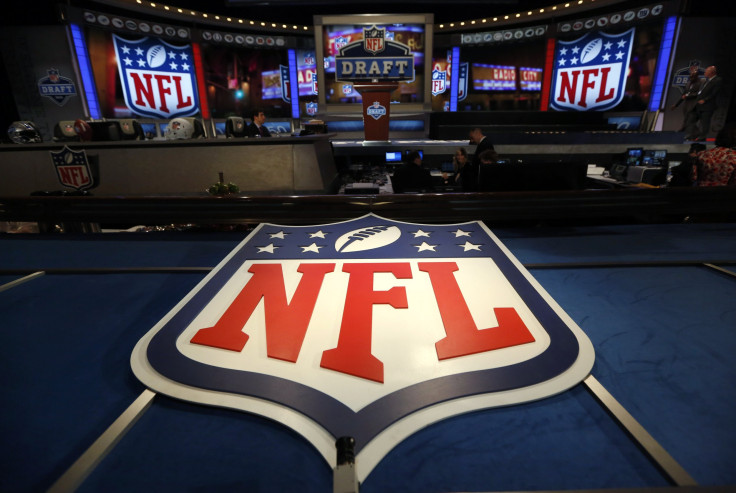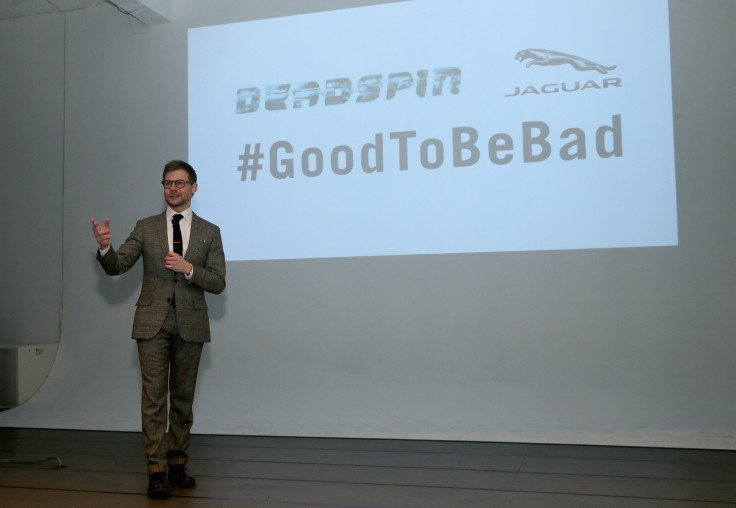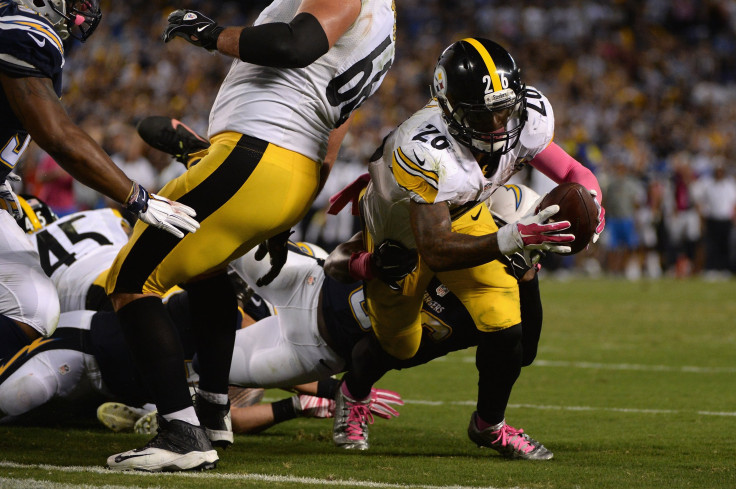Fair Use Or Infringement? NFL Sports GIF Fight Raises Legal Questions For Deadspin, SB Nation

For most readers of the sports blogs Deadspin and SB Nation, the ability to pass around clips of plays, highlights and bloopers during a game is taken for granted in the era of social media. But for the NFL, it’s apparently seen as a liability: On Monday night, Twitter suspended both of the sites’ accounts after getting takedown notices under the Digital Millennium Copyright Act concerning the publications’ tweets.
The fallout has centered on the nature and scope of “fair use,” a legal exception to the rules of copyright. Fair use is a notoriously murky area of copyright law, and there is no hard-and-fast definition of it. But generally speaking, a publisher can argue that a snippet of copyrighted footage or material is up for grabs so long as it’s repurposed in a transformative way, including for purposes of criticism or commentary.
But Mickey H. Osterreicher, general counsel to the National Press Photographers Association (NPAA), told International Business Times that fair use in the digital age is increasingly being thrown up as a catch-all response to genuine appropriations of material, and it doesn’t always pass the smell test.
“Many times when photographers find their work infringed and they contact the people responsible, the people say to them ‘fair use’ and go on their merry way,” he said.
“I’ve actually begun to call it the 'F-U defense,’” he added.
David Korzenik, a media lawyer at Miller Korzenik Sommers Rayman LLP, takes a more generous view.
“While I do think it’s still perilous to use tweets of this kind [embedding unlicensed GIFs and Vines], eventually courts are going to make space and make room for it for that type of fair use,” Korzenik said. “And they should.”
Risky Business
Sports GIFs have been a thorn in the side of leagues for a few years now: FIFA carpet-bombed websites with takedown notices last year for posting unlicensed highlights of the World Cup. Deadspin's then-Editor-in-Chief Tommy Craggs told Digiday that Deadspin also fields NFL takedown requests more or less every week during football season: “The boring, lawyerly answer is that we look at the complaints on a case-by-case basis; we push back when we believe we have a fair-use argument.”
The difference this time is that Twitter, quite conspicuously, shut down two accounts over Monday’s complaints. “Like all of our industry peers, we do not proactively monitor content,” a spokesperson for Twitter, told the Washington Post. “Rights holders report potential violations to us under the DMCA, we review their reports and take action if the content violates our copyright policy.”

SB Nation provided a statement to International Business Times on Tuesday addressing the DMCA takedown notices.
“SB Nation received an email from Twitter notifying us that the @SBNationGIF account had been suspended, due to a DMCA notice Twitter received related to several gifs and vines sent from the @SBNationGIF account, which contained content from college football game broadcasts,” the statement said. “The DMCA notice came from XOS Digital, a third party rights organization.”
“We are working with Twitter to resolve the issue and restore the account. All other SB Nation accounts are in good standing,” it added.
Meanwhile John Cook, currently executive editor at Deadspin’s parent company, Gawker Media, told the New York Times that the site received 18 notices from Twitter over 16 Deadspin tweets containing GIFs, which Twitter soon disabled.
Deadspin’s Twitter account is already back online, but the DMCA notices raise the question of whether blogs can continue to publish and tweet GIFs, Vines and footage of games shot from Periscope -- a Twitter-owned livestreaming app. It’s not an overstatement to call those bits of media the bread and butter of sites like Deadspin.
At the end of its statement, SB Nation said: “We take copyright infringement issues seriously and always try to keep our use of unlicensed third-party footage within the bounds of fair use.”
If the NFL or any other league or broadcaster wanted to push this further, it probably could, and doing so could put the bread and butter of many sites, sports blogs or otherwise, in jeopardy. As SB Nation concedes, fair use is where the question turns, and publishers’ best hope may lie in the form of a dancing baby.
The ‘F-U’ Defense
At this stage, the law surrounding fair use in digital media is open-ended. There’s not a lot of case law to support either owners or users who post unlicensed snippets of music, film or TV. Cases revolving around fair use rarely go to trial because, as Digiday notes, myriad interpretations of fair use produce protracted court battles. They’re often nipped in the bud with the takedown notices or some sort of settlement.
However, one of the most significant cases so far is that of Stephanie Lenz, who in 2007 videotaped her baby dancing to Prince’s “Let’s Go Crazy,” earning herself a takedown notice from Universal Music Group.
Lenz told YouTube, which initially took the video down, that she would not back down and reposted it. After the case moved up to Ninth Circuit Court of Appeals this year, judges in California ruled in September that before filing a takedown complaint, the owners of any media must argue that the publication of their material violates fair use or risk their own fine.
“That’s an example of a court becoming sensitive to the conversational and transformative nature of social media,” Korzenik said. “There’s something else that’s happening there than just showing a movie or clip -- there’s an immediate conversation between real people sharing reactions to event.”

Most times, when intermediaries like Twitter or YouTube host a third party’s posts of copyrighted material, they benefit from the DMCA safe harbor procedure, which allows them to take down a challenged infringement without any liability. Korzenik says that this often results in the suppression of works that are fair use.
Video Killed The TV Star
Looking beyond GIF-gate, there’s the simple fact that news blogs like Slate, Mashable, Salon, Talking Points Memo and countless others use unlicensed footage from broadcasters like CNN or Fox News almost every day. The endless cycle of content-mongering, sports or otherwise, is fueled by such clips, especially in a business where slapping “WATCH” or “VIDEO” before a headline can make the difference between good traffic and a viral sensation.
For whatever reason, the sports leagues are far thirstier for residuals than these other copyright holders, whose material is ripped and distributed just as much.
Perhaps one reason is that as fellow publishers, CNN or Fox would be hoisting themselves on their own petard: Fox News recently settled a lawsuit that had been a closely watched fair use case since 2013, when the network posted on Facebook Thomas Franklin’s famous photograph of New York City firefighters raising the American flag over the rubble of the World Trade Center to commemorate 9/11.
Fox argued that “unique, transformative qualities of social media” qualified the Facebook post as commentary on the photo, rather than unlicensed appropriation for commercial purposes.
There’s a deeper question if owners even understand their own self-interest. Typically, Korzenik argues, they don’t. Instead they attack new technology that they perceive as a threat, when in fact usually turns out to be productive for them.
A case from 1984, known as the “Betamax case,” is one example: the Supreme Court ruled that taping shows for personal use was fair use rather than a form of constitute copyright infringement. Universal attacked the VHS players because people could record the broadcasts; but the medium, of course, turned out to be a new way to sell and finance movies and TV. “All [Universal and Disney] understood was: New technology threatens old distribution patterns. Stop them,” Korzenik said.
It remains to be seen whether the NFL and its partners will look at platforms like Twitter, Vine and Periscope the same way.
© Copyright IBTimes 2025. All rights reserved.






















